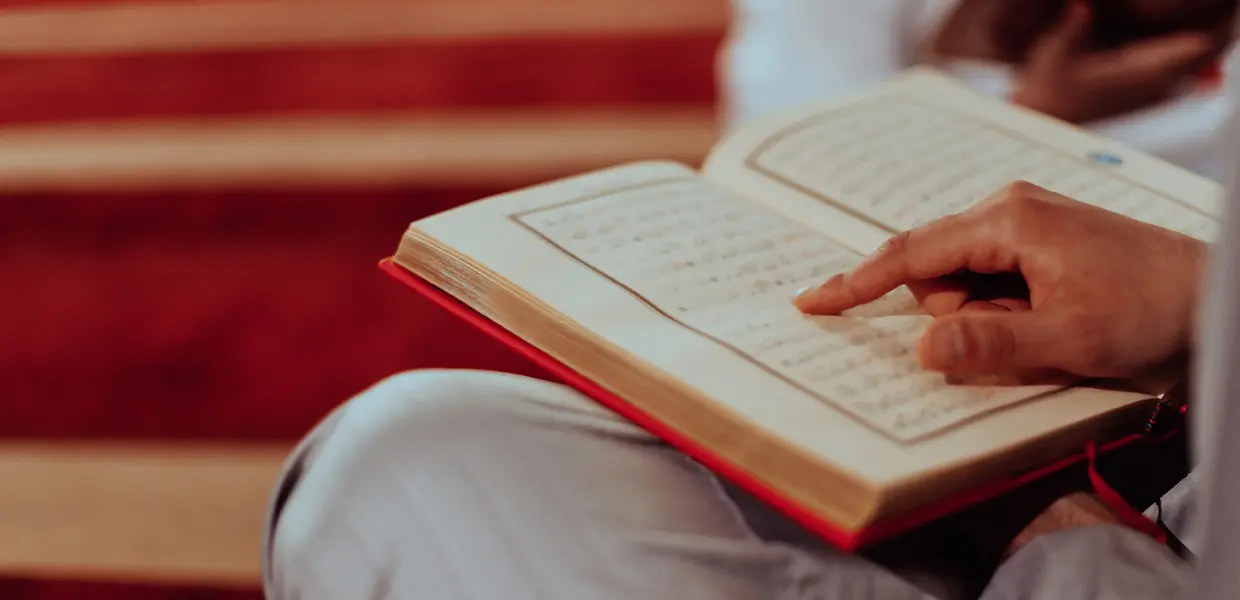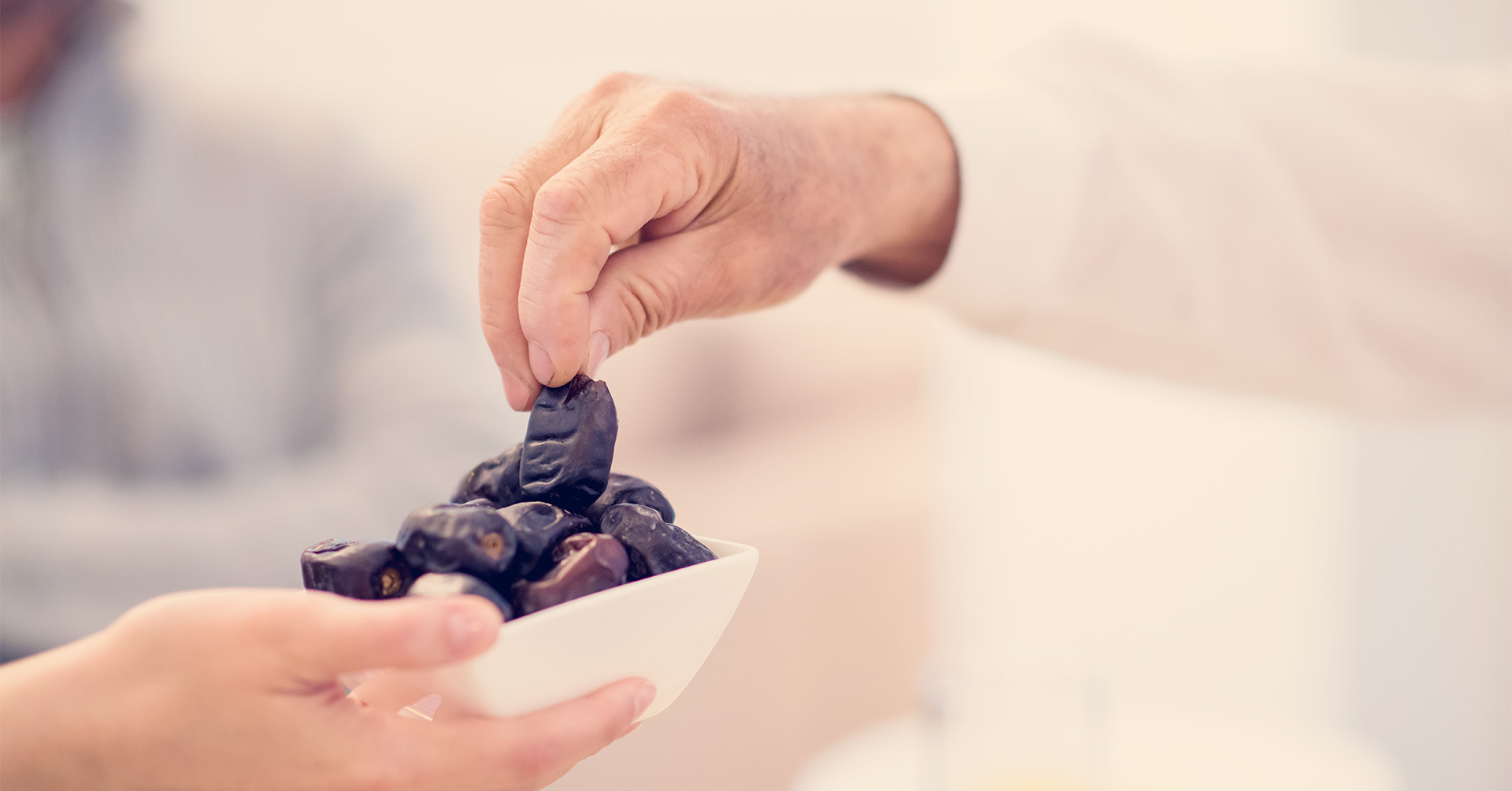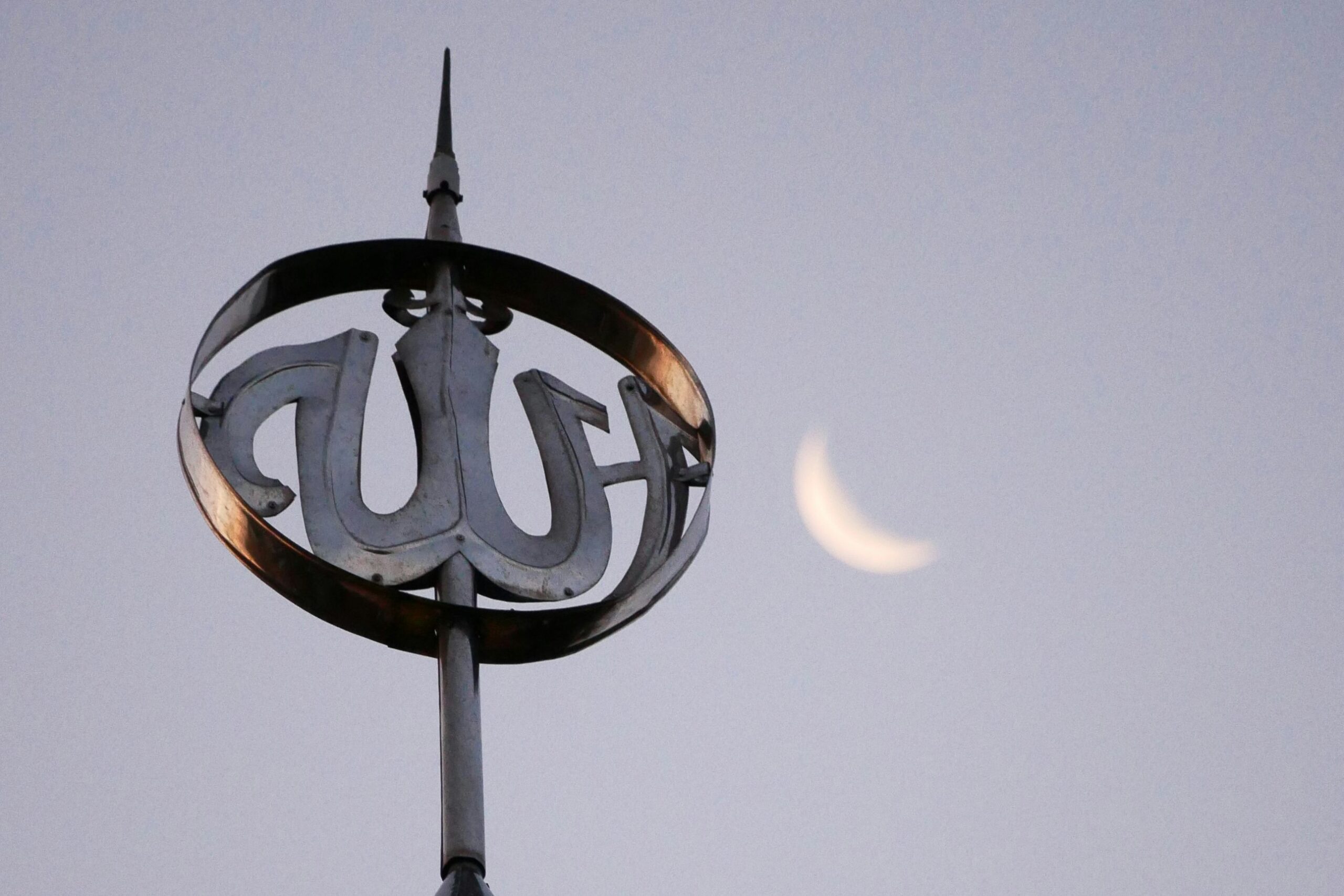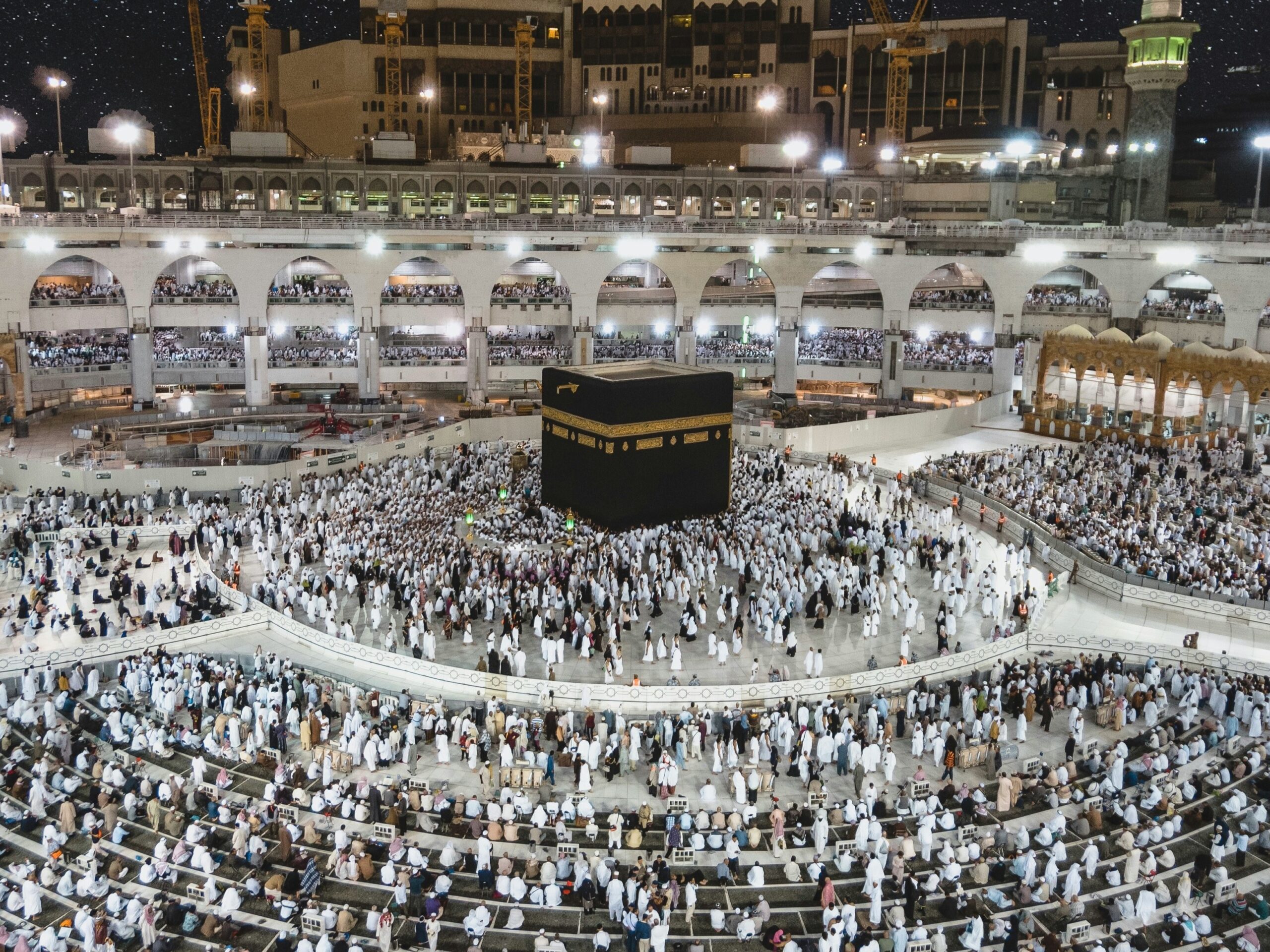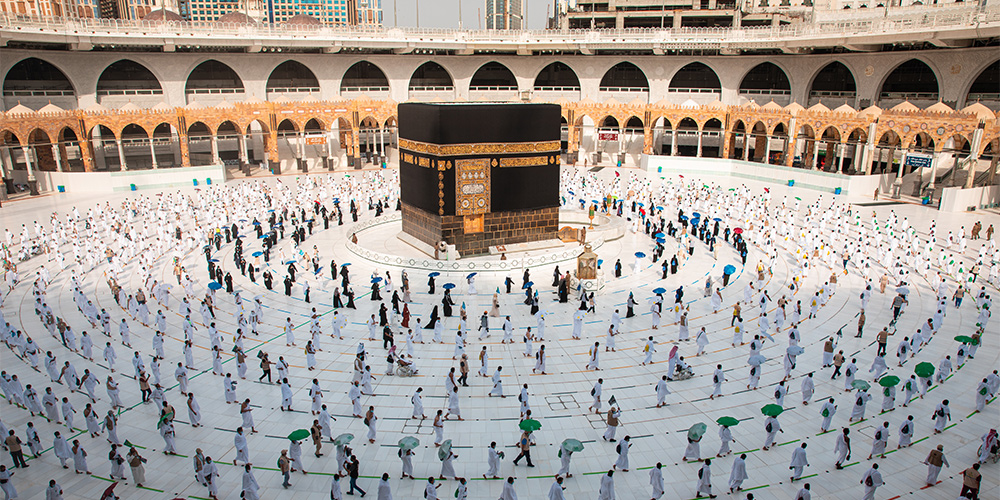
03.27.25
Tahajjud Prayer: What it is and How to Pray It
The Tahajjud prayer (Salatul Tahajjud) is a voluntary night prayer to attain mental strength and peace. It is a spiritual act of worship that allows Muslims to connect with Allah during the tranquil hours of the night.
It is a Nafl (voluntary) prayer that holds immense blessings and is highly recommended for people who are seeking closeness to Allah and inner peace.
Here, we explore the significance of Tahajjud, the best time to perform it, and a step-by-step guide on how to pray.
What is Tahajjud?
Performed during the last third of the night—after the Isha prayer and before Fajr—Tahajjud, or qiyām lay, is an act of devotion that allows us to connect deeply with Allah.
While it is not an obligatory prayer, Tahajjud holds immense significance. Allah says in the Qur’an:
“And during a part of the night, pray Tahajjud beyond what is incumbent on you; maybe your Lord will raise you to a position of great glory.”
Qur’an | Surah Al-Isra | 17:79
Tahajjud was consistently performed by the Prophet Muhammad (ﷺ).
He (ﷺ) said:
Hold on tight to the night prayer. Indeed it is the habit of the righteous who came before you. It brings you close to your Lord, wipes away your sins, prevents you from sinning and repels sickness from the body.
Hadith |Tirmidhī
This prayer embodies humility and dedication, fostering a sense of closeness to Allah that strengthens faith and patience.
When to pray Tahajjud
Tahajjud can be prayed anytime after Isha and before Fajr. However, the most rewarding time is during the last third of the night.
Allah says in the Qur’an:
“O you wrapped ˹in your clothes˺! Stand all night ˹in prayer˺ except a little—˹pray˺ half the night, or a little less, or a little more—and recite the Quran ˹properly˺ in a measured way. ˹For˺ We will soon send upon you a weighty revelation. Indeed, worship in the night is more impactful and suitable for recitation.”
Qur’an | Surah Al-Muzzammil | 73:1-6
The Prophet Muhammad (ﷺ) also said:
Our Lord descends every night to the lowest heaven when one-third of the night remains, and He says: ‘Who will call upon Me, that I may answer him? Who will ask of Me, that I may give him? Who will seek My forgiveness, that I may forgive him?’
Hadith | Bukhari & Muslim
What is the Difference between Tahajjud and Other Night Prayers?
Tahajjud prayer stands apart from Taraweeh and Qiyam al-Layl, each holding its distinct significance within Islamic worship.
- Taraweeh refers specifically to the night prayers offered during Ramadan, often at the beginning of the night.
- Qiyam al-Layl encompasses various acts of worship throughout the night.
- Tahajjud on the other hand, specifically denotes the act of praying after sleep, emphasising a unique aspect of night vigil and spiritual devotion.
How to pray Tahajjud
Before beginning the Tahajjud prayer, it’s important to prepare yourself by performing Wudu (ablution), finding a quiet and clean space for prayer, and deciding the number of Rakats (units of prayer) you’d like to pray.
Tahajjud is prayed in sets of two rakats, and there is no fixed number as to how many to pray.
Here is a quick step-by-step on how to read Tahajjud:
Step 1
Stand facing the Qibla with your feet shoulder-width apart.
Step 2
You should then make a sincere intention to pray Tahajjud to seek Allah’s pleasure.
Step 3
Raise your hands and say “Allahu Akbar” (Allah is the greatest) to begin the prayer. Place your right hand over your left above your chest.
Step 4
Recite Surah Al-Fatihah (the opening chapter of the Quran), followed by another Surah or at least three verses from the Quran.
Step 5
Bow (Rukoo’) by saying “Allahu Akbar” and place your hands on your knees. Say “Subhana Rabbiy-al-Adheem” (Glory be to my Lord Almighty) at least three times.
Step 6
Rise from the bowing position and stand upright while saying, “Sami’ Allahu liman hamidah” (Allah hears those who praise Him) followed by “Rabbana lakal hamd” (O our Lord, to You is the praise).
Step 7
Prostrate (Sujood) by saying “Allahu Akbar” and place your forehead, nose, palms, knees, and toes on the ground. Say “Subhaana Rabbiy-al-A‘laa” (Glory is to my Lord, the Most High) at least three times.
Step 8
Sit up briefly while saying “Allahu Akbar.” Then return to Sujood, repeating “Subhaana Rabbiy-al-A‘laa” at least three times.
Step 9
Rise from the prostration and stand up saying “Allahu Akbar.” This concludes one Rak’ah.
Step 10
Begin the second Rak’ah and repeat steps 4–8.
Step 11
After completing two Rak’ahs, sit and recite the Tashahhud (At-tahiyyatu lillah, was-salawaatu wat-tayyibaat. As-salaamu ’alayka ayyuhan-Nabiyyu wa rahmat-Ullahi wa barakaatu. As-salaamu ’alayna, wa ’alaa ‘ibaadi-llahis saaliheen. Ashhadu alla ilaha illallah wa ashhadu anna muhammadan ‘abduhu wa rasuluhu).
Step 12
Send Salawat upon the Prophet Muhammad (ﷺ) by reciting: “Allahumma Salli ‘ala Muhammadin wa ‘ala aali Muhammadin, kama sallaita ‘ala Ibrahima wa ‘ala aali Ibrahima innaka Hamidum-Majeed. Allahumma barik ‘ala Muhammadin wa ‘ala aali Muhammadin kama barakta ‘ala Ibrahima wa ‘ala aali Ibrahima innaka Hameedum-Majeed”.
Step 13
It is highly recommended to recite some Sunnah du’as (supplications) at this point.
Step 14
Conclude the prayer by turning your head to the right and then to the left, saying “Assalamu alaikum wa rahmatullah” each time.
Step 15
After completing your prayer, make heartfelt supplications to Allah. This is a powerful time for Du’a, as the Prophet Muhammad (ﷺ) said:
“The closest that a servant comes to his Lord is during the last part of the night, so if you can be among those who remember Allah at that time, then do so.”
Hadith | Tirmidhi
Du’as for Tahajjud
Reciting dua during Tahajjud is a significant act of worship. For it allows us to present our deepest hopes and concerns to Allah in the stillness of the night.
The sincerity of these supplications is amplified during this time, making it a powerful moment for seeking guidance, forgiveness, and divine blessings.
The Prophet Muhammad (ﷺ) emphasised the importance of dua during Tahajjud, encouraging believers to call upon Allah using both prescribed supplications and personal prayers. Whether recited during bowing, prostration, or between movements, it serves as a means of drawing closer to the Almighty and attaining His mercy and favour.
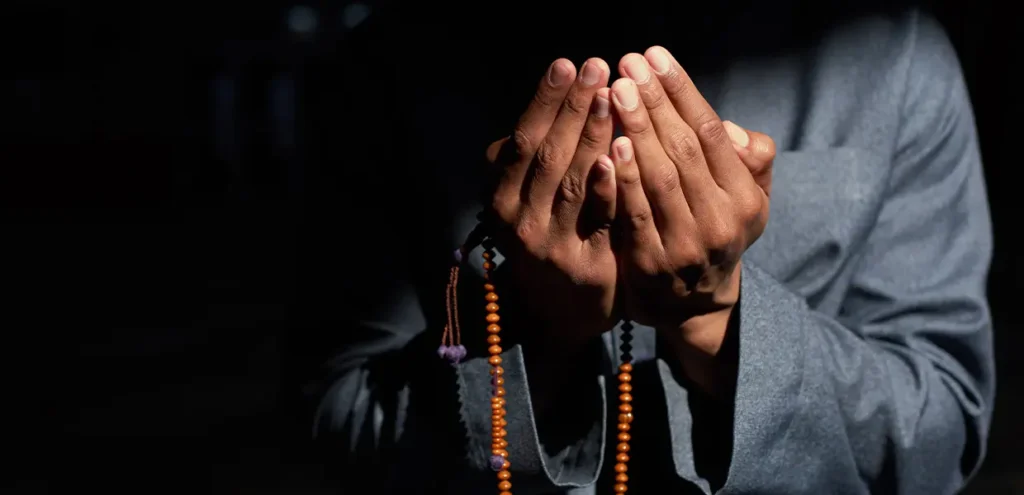
Rooted in prophetic teachings, these duas begin with praise, followed by gratitude and sincere requests, reflecting deep faith and trust in Allah (SWT).
Dua for Starting Tahajjud
اللهم لك الحمد أنت قيم السماوات والأرض ومن فيهن، ولك الحمد، لك ملك السماوات والأرض ومن فيهن، ولك الحمد أنت نور السماوات والأرض ومن فيهن، ولك الحمد أنت ملك السماوات والأرض ومن فيهن، ولك الحمد أنت الحق، ووعدك حق، ولقاؤك حق، وقولك حق، والجنة حق، والنار حق، لك أسلمت، وبك آمنت، وعليك توكلت، وإليك أنبت، وبك خاصمت، وإليك حاكمت، فاغفر لي ما قدمت وما أخرت، وما أسررت وما أعلنت، أنت المقدم وأنت المؤخر، لا إله إلا أنت، أو لا إله غيرك، ولا حول ولا قوة إلا بالله.
“O Allah, to You is all praise. You are the Sustainer of the heavens and the earth and all that is within them. To You is all praise. Yours is the dominion of the heavens and the earth and all that is within them. To You is all praise. You are the Light of the heavens and the earth and all that is within them. To You is all praise. You are the King of the heavens and the earth and all that is within them. To You is all praise. You are the Truth, Your promise is true, the meeting with You is true, Your word is true, Paradise is true, Hell is true. To You I have submitted, in You I have believed, upon You I have relied, to You I have turned, with Your help I have disputed, and to You I have brought my case. Forgive me for what I have sent ahead and what I have left behind, what I have concealed and what I have declared. You are the One who brings forward and delays. There is no deity except You, or there is no deity besides You. There is no power or strength except by Allah.”
Dua During Sujood (Prostration)
اللهم اغفر لي ذنبي كله، دقه وجله، وأوله وآخره، وعلانيته وسره.
“O Allah, forgive me all my sins, the minor and the major, the first and the last, the open and the hidden.”
Dua After Tahajjud
اللهم إني أسألك رحمة من عندك تهدي بها قلبي، وتجمع بها شملي، وتلم بها شعثي، وترد بها ألفتي، وتصلح بها ديني، وتحفظ بها غائبي، وترفع بها شاهدي، وتزكي بها عملي، وتبيض بها وجهي، وتلهمني بها رشدي، وتعصمني بها من كل سوء.
“O Allah, I ask You for mercy from You by which You guide my heart, gather my affairs, mend my flaws, return my estrangement, rectify my religion, protect my absence, elevate my presence, purify my deeds, brighten my face, inspire me with guidance, and protect me from all evil.”
You can view more duas to read for Tahajjud here.
The benefits of Tahajjud
Praying Tahajjud is a beautiful way to nurture your connection with Allah (SWT).
By dedicating a portion of your night to this voluntary act of worship, you open your heart to Allah’s mercy and blessings.
Tahajjud is also a powerful time for Du’a, with greater chances of your prayers being accepted during these quiet hours.
Even if you start with just two raka’at, aim to pray Tahajjud regularly. The key is consistency. The Prophet (ﷺ) said:
The most beloved deeds to Allah are those that are consistent, even if they are small.
Hadith | Bukhari & Muslim
During Ramadan, Tahajjud holds even greater significance for many believers, as the rewards for worship and prayer are multiplied, making it an ideal time to strengthen our bond with Allah.
Tahajjud is not about the quantity of your prayer but the sincerity and effort you put into it. Whether you are seeking forgiveness, guidance, or a deeper connection with Allah, this special prayer is a profound way to achieve it.
Find out more about the importance of Salah here.

